2020 marked the 20th anniversary of the adoption of the two Optional Protocols to the Convention on the Rights of the Child. In commemoration of this anniversary, the Permanent Mission of Belgium together with the Permanent Mission of Uruguay took the initiative to deliver a strong statement with support from both States and civil society. The statement called for universal ratification of the Optional Protocols and timely reporting. It also welcomed the Committee’s Guidelines regarding the implementation of the Optional Protocol on sale and sexual exploitation of children and a multidisciplinary approach in prevention and protection, promoting cooperation and consultation with children and civil society. The statement delivered on Tuesday September 22nd at the 45th session of the Human Rights Council’s General Debate on Agenda Item 3 got the support from 55 States and 39 civil society organizations. This statement will be an important advocacy tool to support advocacy efforts at the national level to ensure universal ratification and timely reporting. Read the full text below:
GENERAL DEBATE on ITEM 3:
Statement on the 20th Anniversary of the two first Optional Protocols to the Convention on the Rights of the ChildMadam President,
It is my pleasure to deliver this statement on behalf of Albania, Andorra, Argentina, Australia, Austria, Bhutan, Bosnia and Herzegovina, Brazil, Bulgaria, Canada, Croatia, Cyprus, Czech Republic, Denmark, Ecuador, El Salvador, Estonia, Finland, France, Germany, Greece, Guatemala, Hungary, Iceland, India, Ireland, Italy, Kazakhstan, Latvia, Liechtenstein, Lithuania, Luxembourg, Malaysia, Malta, Mexico, Monaco, Montenegro, Netherlands, Norway, Panama, Peru, Poland, Portugal, Romania, Slovakia, Slovenia, Spain, State of Palestine, Sweden, Switzerland, Turkey, Ukraine, Uruguay, North Macedonia and my own country, Belgium.
Last May 25, we celebrated the twentieth anniversary of the two optional protocols to the Convention on the Rights of the Child. Though optional, both protocols have clearly benefited from the ratification zeal that made the Convention near universal in application, as the OPSC is now in force in 176 countries and the OPAC in 170. We call for a further strong mobilization to reach full universal ratification of both protocols, as well as for improved reporting rates under these instruments to the Committee on the Rights of the Child, as over a hundred of those reports are still, unacceptably, overdue.
We welcome the strides that have been made in protecting children from recruitment by non-state armed groups, in raising the minimum age for recruitment and deployment of children to take part in hostilities, and in criminalizing child recruitment by parties to conflicts.
We equally welcome and wish to highlight the relevance of the guidelines, regarding the implementation of the protocol on sale and sexual exploitation of children issued exactly one year ago by the Committee on the Rights of the Child. They provide us with a deeper understanding of the protocol’s terminology and substantive provisions, also in light of recent developments in the digital sphere; they enable a more effective and prevention-focused implementation and ensure that the protocol remains a living instrument enhancing the protection of children. Last but not least, they are highly commendable in supporting and strengthening initiatives and efforts undertaken by State parties to better fulfil their obligations under the protocol, including in respect of reporting.
While we embarked on the global 2030 Agenda’s Decade of Action, the COVID-19 pandemic has once again highlighted that the protection of millions of children is a continuous endeavour. Numerous challenges, some of them new, are waiting to be tackled. With the poorest and most vulnerable children being hit hardest, countries should strive to ensure that the social and economic consequences of the pandemic do not negatively affect the protection of children’s rights. Recruited and sexually exploited children are victims, and should be treated as such. No child should suffer from such a fate. We call on all states, whether parties to the protocols or not, to make sure that children are safe at all times wherever they are. A multidisciplinary approach is key in prevention and protection, consulting children themselves and States’ cooperation with civil society are equally crucial aspects. We owe it to our children to put all our efforts in fighting these horrendous crimes.
List of non-governmental organisations endorsing the Statement:
- Child Rights Connect
- Children’s Rights Alliance for England, part of Just for Kids Law
- Centre of Excellence in Alternative Care of Children, India
- Institute on Statelessness and Inclusion
- Make Mothers Matter (MMM)
- Defence for Children International
- Plan International
- Child Rights Information Centre (CRIC) Moldova
- Save the Children
- Plataforma de Infancia (Spain)
- International Social Service
- Terre des Hommes International Federation
- International Catholic Child Bureau (BICE)
- Railway Children
- Red por los Derechos de la Infancia en México
- ECPAT International
- Infancia sin Fronteras
- Child Rights International Network (CRIN)
- Fundación Amigó
- IBFAN-Gifa International Baby Food Action Network – Geneva
- International Movement ATD Fourth World
- National Coalition for the Implementation of the UN-Convention on the Rights of the Child in Austria
- Egyptian Foundation for Advancement of the Childhood Conditions ( EFACC)
- Defense for Children International Egypt Branch
- Partnership for Human Rights – PHR, Georgia
- Alliance for the Rights of the Child (ADP) Czechia
- ChildPact – Regional Coalition for Child Protection
- SOS Children’s Villages International
- Humanium
- International Council of Women (ICW-CIF)
- Action on Child, Early and Forced Marriage
- UWC Dilijan College
- Arigatou International
- Plataforma NNAPES
- Child Protection Network (Armenia)
- La Coordinadora por los Derechos de la Infancia y la Adolescencia (CDIA Paraguay)
- Women’s World Summit Foundation




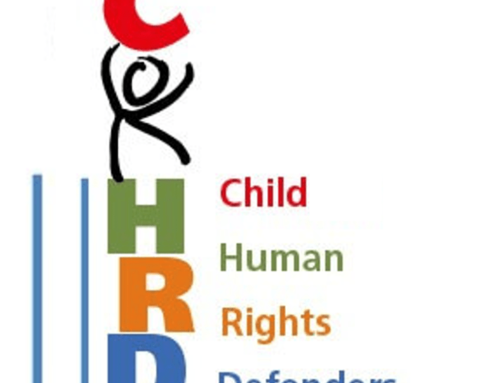
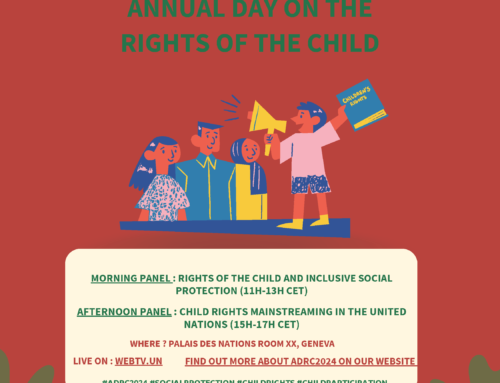
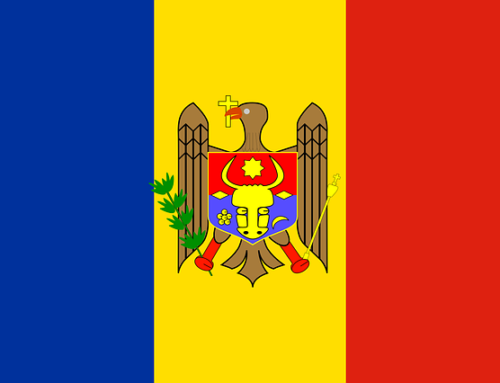
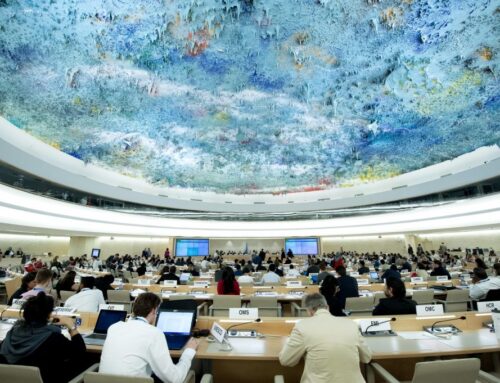
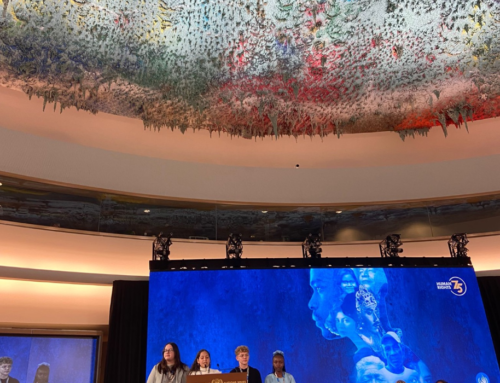

Leave A Comment